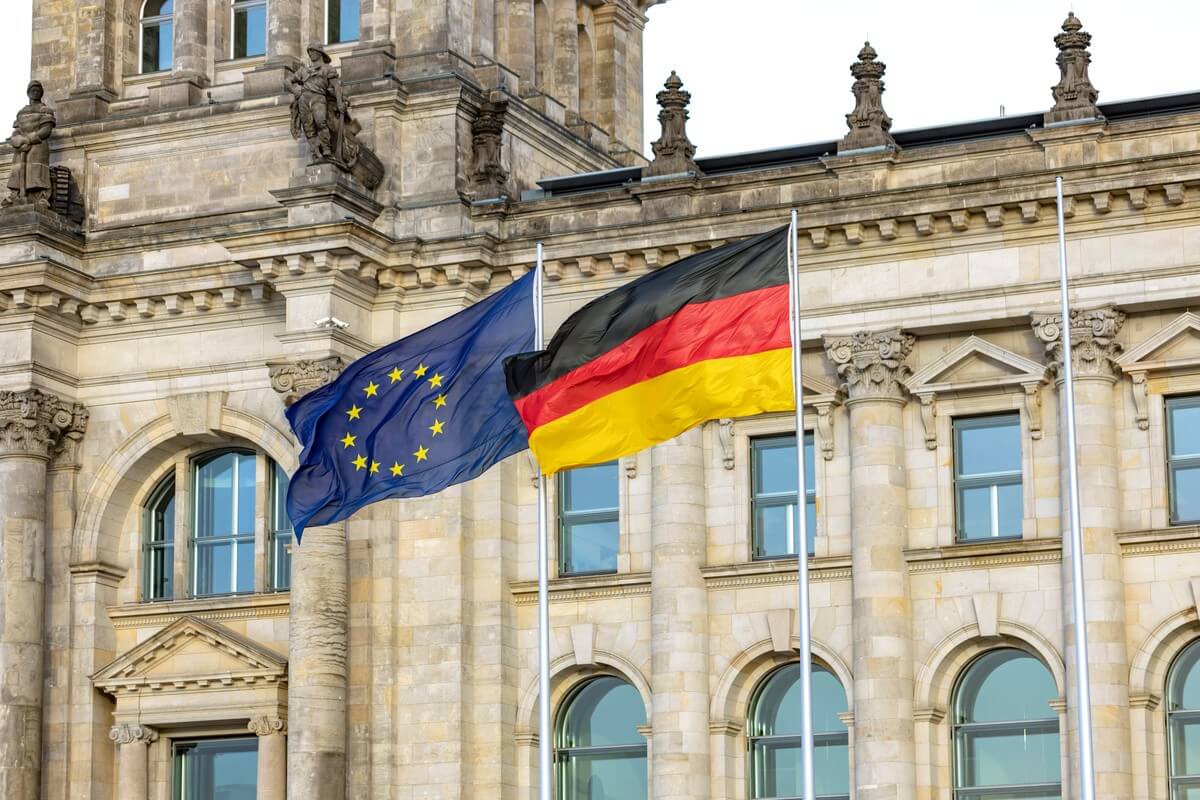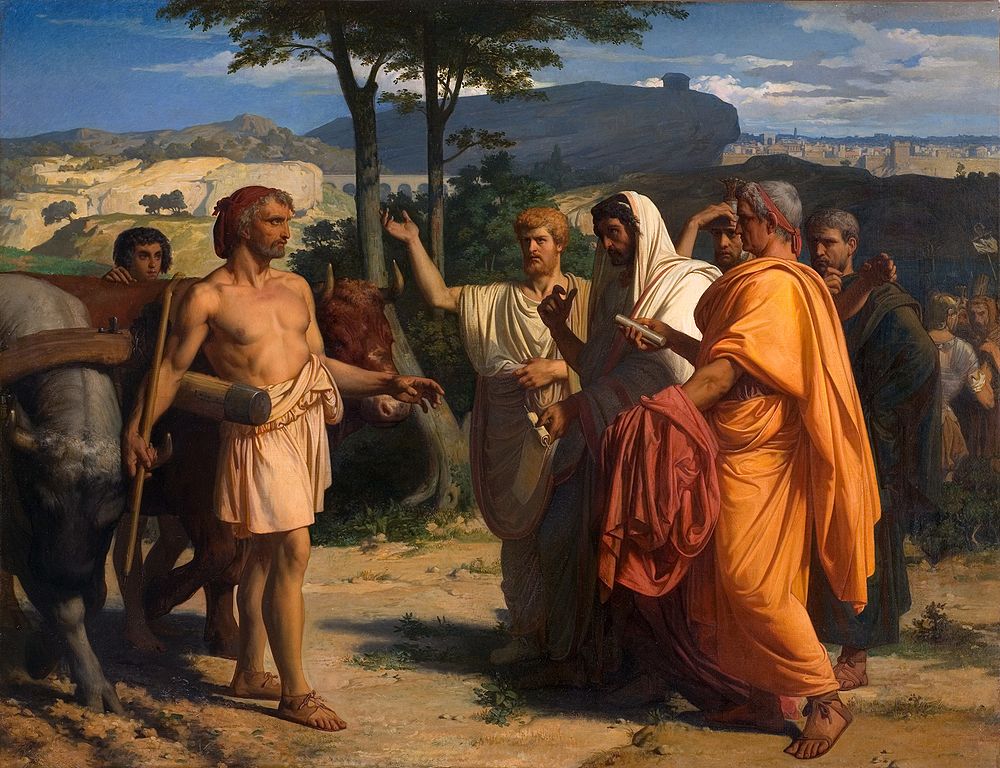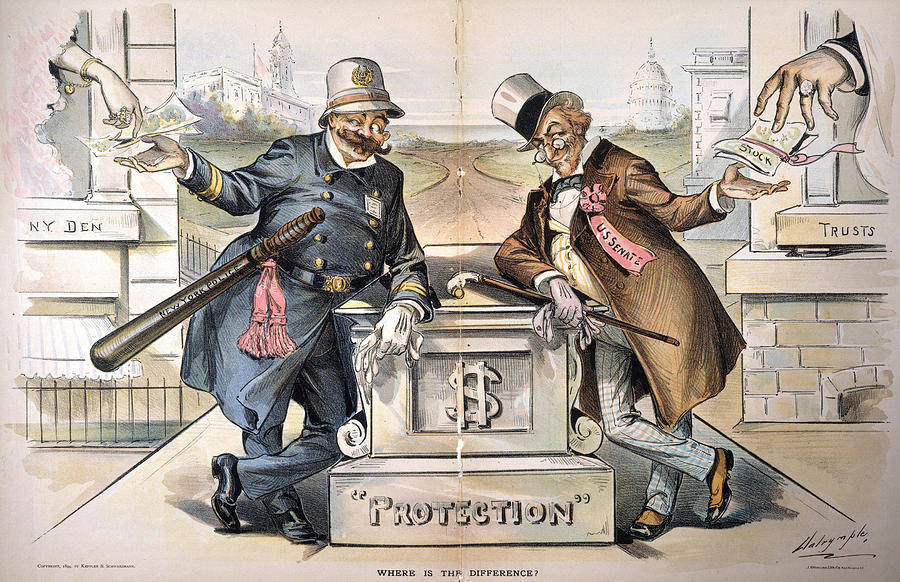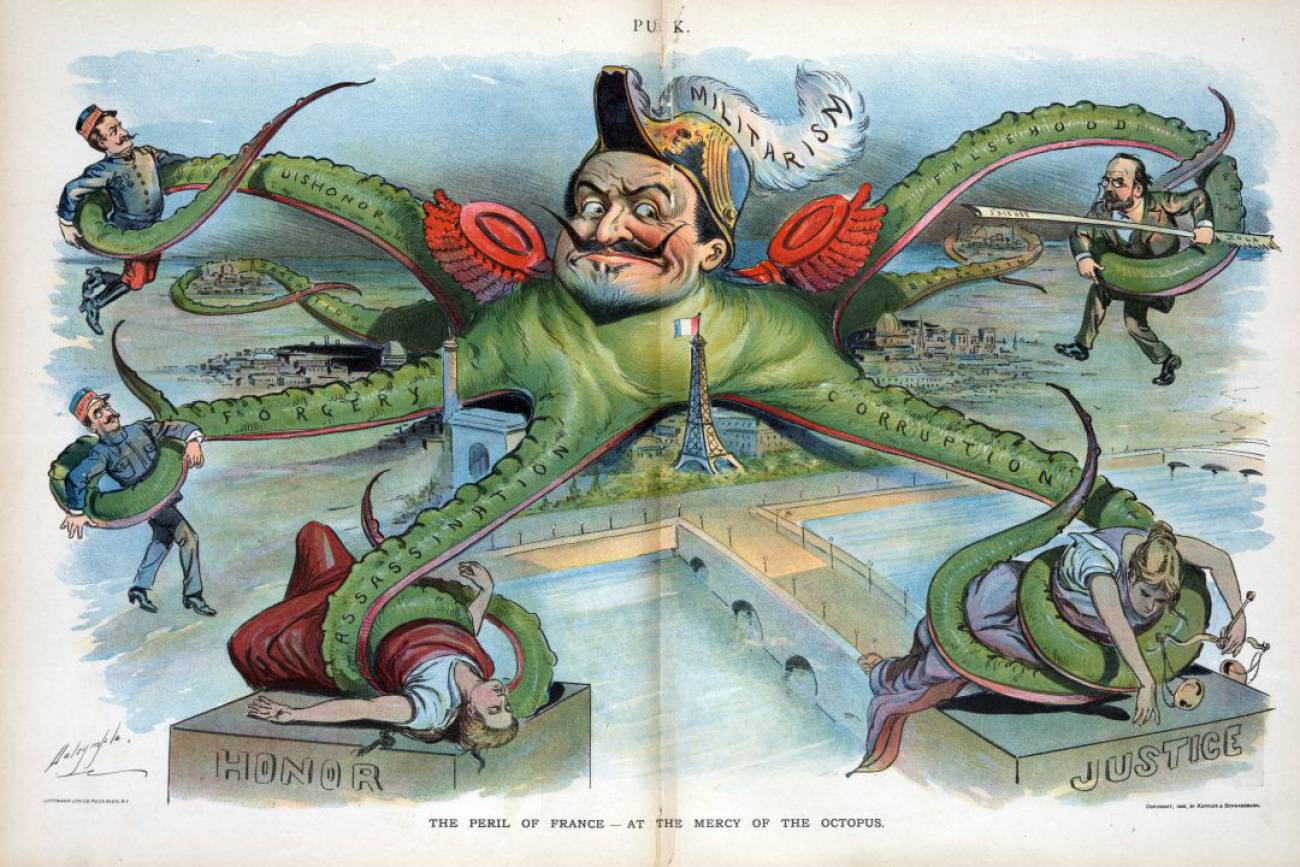A single question seems to recur throughout modern European history and it is known as “The German Question.”
Is it a black swan or a red herring? A white Horse, a blue moon, or yellow-bellied?
Whatever your answer, it appears to have arisen again in the present context of the Russian invasion of Ukraine. (Or as Biden refers to it, a “minor incursion.”) Berlin once again finds itself on the opposite side of Washington on important matters of regional security. Equally troublesome is the Biden crime family role in this unfurling and belligerent scenario.
Karl Marx’s bias toward the “specialness” of the German nation had more pragmatism to it than history would allow—Russian serfs would provide a more fertile ground for sowing proletarian revolutionaries, far more than the reactionary Bismarckian factory worker that curdled into fascism. Maoism would ride this insight into the rice fields of China, repeating a vanguard-led peasant’s revolt against urban elites.
Marx, you will recall going all the way back to at least 1845, was trying to win elections while laying the foundations of communism with Germany, front and center. Germany remained a locus of problems during World War I, the Russian Revolution, the Versailles Peace Treaty, the rise of Hitler, World War II, the Holocaust death camps, the division of Germany thereafter, the Cold War, Germany’s reunification, the elevation of a German EU, and now with the eventual breakup of NATO. What is it about Deutschland and the Germans themselves?
Marx and Engels’ analysis of German society can be fruitfully viewed as a materialist adaptation of earlier romantic views on German special development, with an undeniable debt to Bismarck—as per Marx’s own debates with the Russian anarchist, Mikhail Bakunin, where he ceded on the essential question of the pre-existing Kaiserian police state, a bite of Fouché’s statist apple which would flower into the NSDAP’s SA brownshirts. Marx’s fantasy was that the relatively prosperous Germany’s pattern of development differed markedly from the general theory outlined in part one of his infamous manifesto.
If the bourgeoisie could not further the development of society, that task necessarily fell to the all-critical German proletariat, thereby placing them at the head of the international workers’ movement—with Marx at the pinnacle. Thus, the initial relative backwardness of the German working class could be transformed into a position prior to that of England, the country that industrialized first, and France, where the most complete bourgeois revolution had occurred.
Germany was the lynchpin, the central actor in the European theater. And problematically, so it remains.
The Communist Manifesto contained the fullest exposition of the important Hegelian materialistic conception of history, which set out to show how, historically, societies had been structured to promote what was termed, the interests of the economically dominant class. But the work found no publisher and remained unknown during its authors’ lives, as it wasn’t published until 80 years later. The German Question however did not rest and continually assumed center stage, as it has yet again.
There are today two dilemmas that put Germany in the spotlight.The first disclosure goes back to the very founding of the European Union. The later situation of more recent newsworthiness, revolves around NATO.
Exhibit 1: The European Union
Already in 1952, Jean Monnet, one of the leftist French minds behind the European abduction candidly said, “Europe’s nations should be led towards a superstate, without their people understanding what is happening. This can be accomplished by successive steps, each disguised as having an economic purpose, but which will eventually and irreversibly lead to federation. Germany is the key.”
The European Union and its antecedents were a product of ideologues and continentalists opposed to all English Lockean traditions and common law who, instead, followed Rousseau’s notion of a “General Will.”
European Rechtsstaat ideas of collectivism, statism, protectionism, and corporatism are not so apparent as the Blitz and the Wehrmacht, which is the reason they were successfully established in Europe under the garb and false pretense of the all-powerful administrative European Union. The Fabian strategy of avoiding conflict while grabbing as much power as possible worked for over four decades.
Since the end of World War II the Brits, among others, were bamboozled and its leaders acquiesced, even appeased, into the promotion of European, then German integration, against their better judgment and national interests. Many surrendered their citizenship wanting instead to be members of a global elite and “European.”
Recall at first, France’s Charles De Gaulle treated the Brits as supplicants and vetoed their application to join the clubby European Project. Battered Britain licked its wounds until she was finally allowed in, in 1973. The animosity between Germany and Britain has only grown and is even deeper today.
The anti-democratic European Project was created in the name of preventing the spread of Soviet-style communism but instead became a halfway house for it. Brussels never had as much power over its member states as Moscow did, but the leftist, socialist influence drew them ever closer. It was soon the nexus of more and more centralization and illiberalism, aptly named the EUSSR by many of its critics.
Britain, largely because of American pressure, allowed Europe to snatch defeat from the jaws of victory. The United States actively promulgated the plan and pushed it on its allies, more or less forcing the Brits to join Europe. This has had adverse consequences, including an anti-American prejudice, which is utterly counterproductive. It has unintentionally set up a major adversary to America with Germany at its core—diplomatically, economically, politically, and militarily—in spite of supposed NATO defense obligations (with which the Europeans still don’t comply). The unipolar moment America enjoyed after defeating the Soviet Union in 1991 was the breathing space needed to try another alternative.
Finally, after decades of strained and mostly one-way trans-Atlanticism, Trump turned the course, upset the tables like Jesus in the Temple, and altogether disrupted the ancien régime.
In fact, the deep roots of the European Union lay bare its darker and true orientation.
As Jacques Delors, the former president of the European Commission himself once quipped, “Governmental elites should be involved on the central decision-making process and increasingly identify with it . . . the process is not, in itself, democratic.”
This led to the real iron cage which should not be overlooked, namely: German hegemony.
The EU was always to be a way to both contain and expand the bogeyman of Europe, an uncontrollable Germany. The German Bundesbank itself admitted such throughout the latter 1990s. After reunification, they proudly pronounced: “The Federal Republic will ultimately be the country which profits most from European unity, even if this is not immediately visible.”
The essential truth is that American statesmen nurtured this European Movement and enmeshed democratic, common law, individualist, and Anglo-tradition bound Britain into an undemocratic and socialist, statist, foreign hyper-organization. By suborning democracy, the CIA in particular submerged Britain’s national interests (ironically) to those of Europe as a whole. The deep state, even then, always thought it knew best.
The promise of prosperity, security, and commercial advantage proved illusory.
Fortunately, Britain avoided the debacle of the Euro, the fake currency that lies at the heart of the European disaster. Nigel Farage got his start in populist agitation in the campaign against the Euro. The instability of the European system is reflected in its stagnant economies, grossly rigid structures, high unemployment, and low growth. To the extent that leaving the EU was possible, the victory of Sterling over the Euro in spite of Tony Blair’s premiership, was the vital turning point in this history.
Pity the poor(er) southern European states, faced with an economic crisis after having surrendered both fiscal and monetary policy to the EU—fighting against Germany’s economic might with both hands tied behind their backs.
Of course, if the Euro fails, Europe fails.
So, it is noteworthy that Chancellor Angela Merkel repeatedly reminded us that, “We have a Treaty under which there is no possibility of paying to bail out states in difficulty.”
And many there are. Their loss is Germany’s gain.
The EU is either a European Germany or a German Europe. Take your pick. Yes, Europe always seems to revolve around the so-called German Question, i.e., assertiveness and dominance by the former Prussians.
The 19th century German idealist philosopher Johann Gottlieb Fichte perhaps said it best: In Germany, freedom was transcendental, and that nation had a “special destiny” (besonderes Schicksal) in history to march toward it. Even if this romanticism meant imposing its will or eliminating others in the process, so be it, at any and all costs. Germany needed Lebensraum.
Remember, it was the intellectual and upper classes that allowed the emergence of the Third Reich due, in large part, to what later came to be known as the “authoritarian personality,” a.k.a., transfigured Nazis.
German tutelage still saturates all of Europe and is consolidated though the single currency, single market, dominance in interest rates (ECB), strict industry standards and protocols, overly bureaucratic laws, and panoply of regulations. In the German language this haughtiness is translated as, hochmütig, the bitter envy and disgust for the “other”—and lesser beings.
Of all this, Britain is thankfully now free. The Stockholm Syndrome of hostage taking is over and Britons no longer need to love their captors. Like Gollum breaking the spell of the “One Ring to Rule Them All,” nothing more than an act of will to turn back and say “no,” was necessary.
Brussels, it turns out, is after all a non-place—generic, dysfunctional, technocratic, cosmopolitan, and completely dystopian.
Free of the EU, the UK now has an historic opportunity. A new Renaissance beckons. The “Great” is being put back into Britain, as Trump would say.
Trade and innovation are flourishing, again. As a free-trading nation state, the UK is making its own way (on taxes and tariffs), secure in its own borders and laws, defending itself and experiencing much greater prosperity. The German Question was answered in the negative. Nein danke.
In a few short years, let alone five or 10 years on, Britain will become a real beacon—a light of freedom and all of Europe would be well advised to follow in her footsteps. The irreformable, anti-democratic German-centric Leviathan must be tamed or slain.
Auf Wiedersehen EU, and good riddance. Yet German domination did not die with Brexit: It rolls on and on.
Exhibit 2: NATO
Now we see Germany, a full (but free-riding) member of NATO and a huge beneficiary of its defense and protection for generations, walking back from that institution in the throes of Russia’s third invasion of Ukraine.
Yes, third. The first was in the Donbas with “little green men” eight years ago, and the second, while Obama slept, was Russia’s annexation of Crimea—without so much as the lifting of a finger and barely a protest.
This time with far more than 100,000 Russian troops and tanks amassed on three sides, Ukraine will totally fall and a puppet Russian government will soon be installed in Kyiv. NATO could do more than huff and puff or consider a bunch more damaging sanctions, but Germany won’t let it. The 30-nation organization (28 in Europe, plus Canada and the United States) is being torn apart by the German Question.
The Germans won’t defend Ukraine, send armaments or support, and have banned other countries (members of the same alliance) from using their airspace or ground transport to do so. Germany has broken with NATO and insisted on a pro-Russia approach and said it will not go along with some of the proposed Biden sanctions. Most important among those is the SWIFT financial payments system. Banning Russia from using it would be a crippling sanction with some teeth. Germany says no.
The new socialist government in Germany is further left of center than ever before and closer to Russia. Many of its primary cabinet members are Ossie’s—from East Germany, the former Soviet colony and coincidentally the place where Vladimir Putin was stationed when the Berlin Wall fell.
The real reason Germany is acting against NATO is selfish interest. Germany has expanded its empire eastward and to Russia in trade and investment over the last three decades. It sees this as their economic zone, exclusively.
In energy policy Germany has gone green, killing its nuclear power stations, failing to provide more than a small fraction of its needs from alternative sources, shuttering its coal plants, and making a total commitment to the carbon based natural gas option. With no supply of its own it is dependent on imports. And from where do those imports come? Russia.
The former socialist chancellor of Germany, Gerhard Schröder, is now conveniently the chairman of Russia’s Gazprom. The pipeline to ship that gas runs through Ukraine but a better solution might be a direct link from Russia through the Baltic Sea to Germany cutting out the pesky Ukrainians. There you have it: Nord Stream 2.
Germany is entirely dependent on Russian gas, so it can’t upset the provider—with whom it is in bed.
Oddly, Joe Biden, after shutting down the Keystone pipeline here to placate his party’s progressive, anti-fossil fuel wing, removed the sanctions and allowed Russia to complete its Nord Steam 2 gas pipeline.
With the arm twisting of former Clinton chief of staff Mack McLarty and his lobbyist firm, including former Reagan ambassador to Germany, Richard Burt (an anti-Trumper), they got Biden to do what the Russians and Germans had long wanted.
They were paid handsomely for their work. It didn’t hurt that Hunter Biden also received $3.5 million in a wire transfer around the same time from a Russian oligarch close to Putin and tied to the mayor of Moscow. For what? Likely for the same benefit as his $85,000 a month from the Ukrainian gas company that allowed his decadence and likely bribed his father.
The bottom line is that the Ukrainians voluntarily gave up nuclear weapons on our promise to protect them from nuclear blackmail. What will Moscow tell them if they demand for them back, or make another set? The American nuclear umbrella is still the world’s foremost means of preventing nuclear proliferation and that is still a good thing.
If the Germans want to get in the way of that, then the German Question forever remains the boogeyman of Europe.
Theodore Roosevelt Malloch, scholar-diplomat-strategist, is CEO of the thought leadership firm The Roosevelt Group. He is the author of 18 books, including The Plot to Destroy Trump and, with Felipe J. Cuello, Trump’s World: GEO DEUS. He appears regularly in the media, as a keynote speaker, and on television around the world. This article appears through the kind courtesy of American Greatness.









